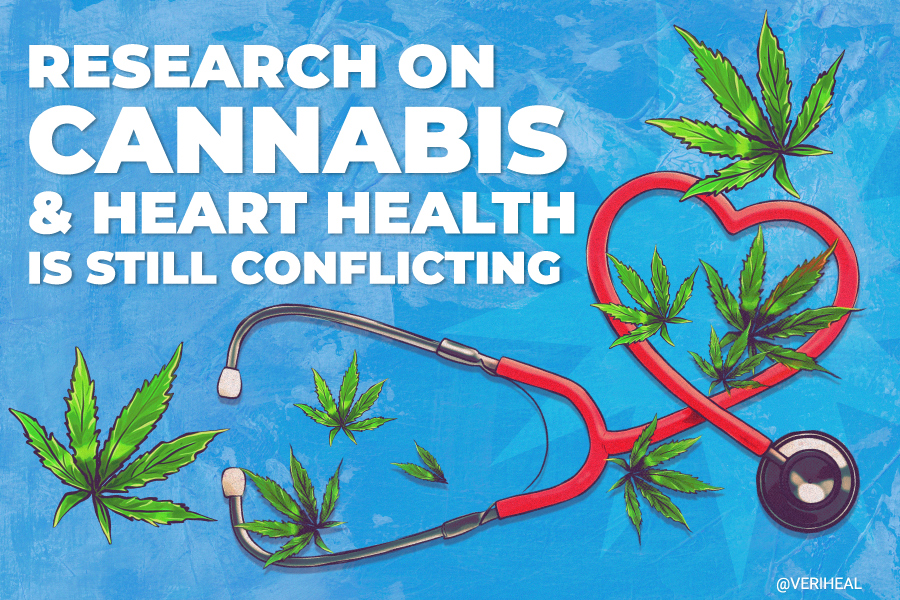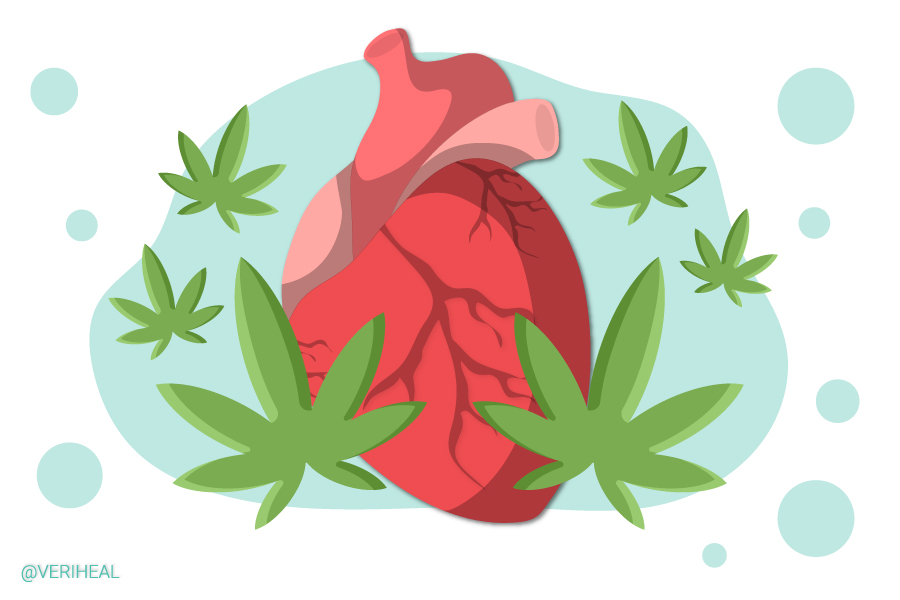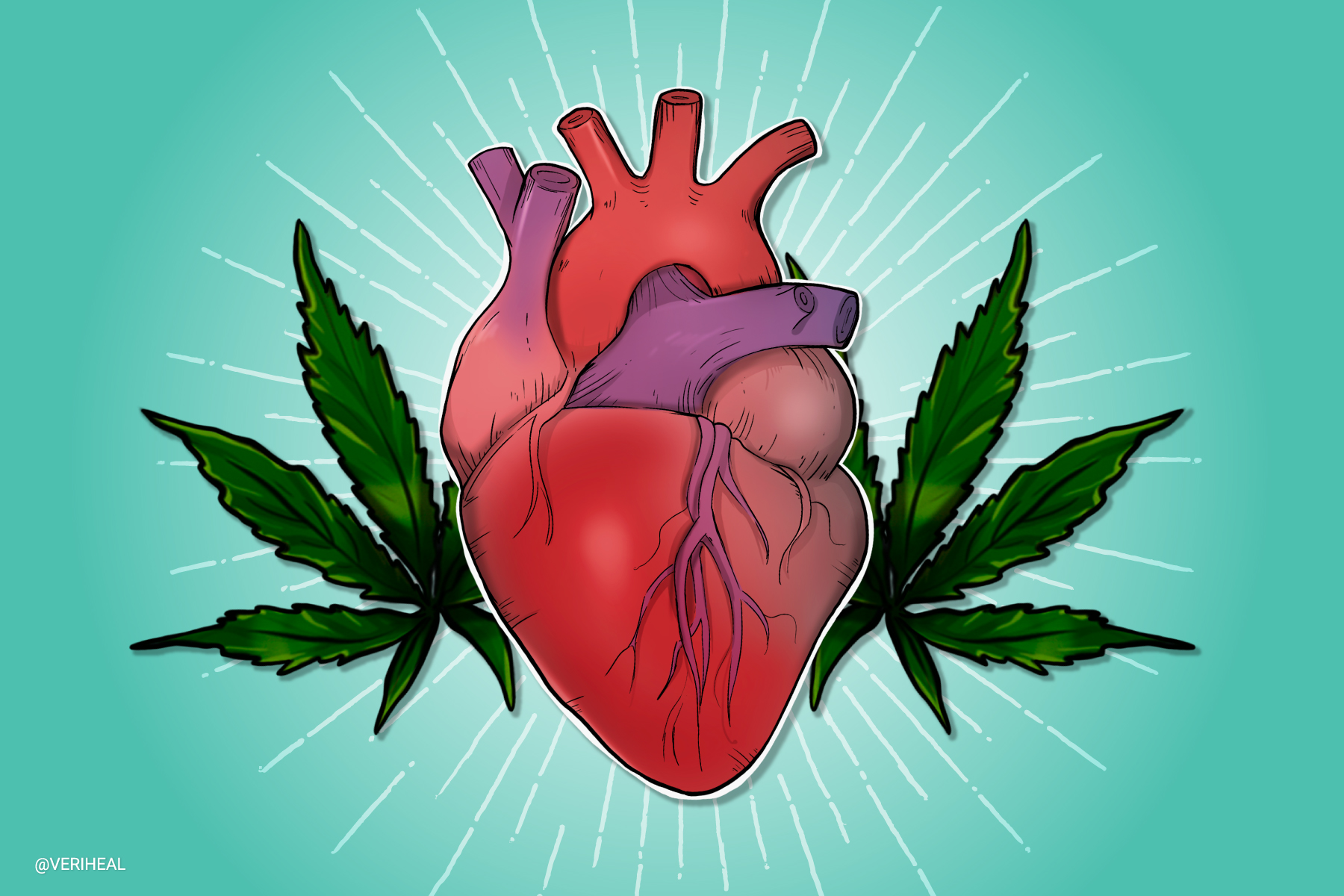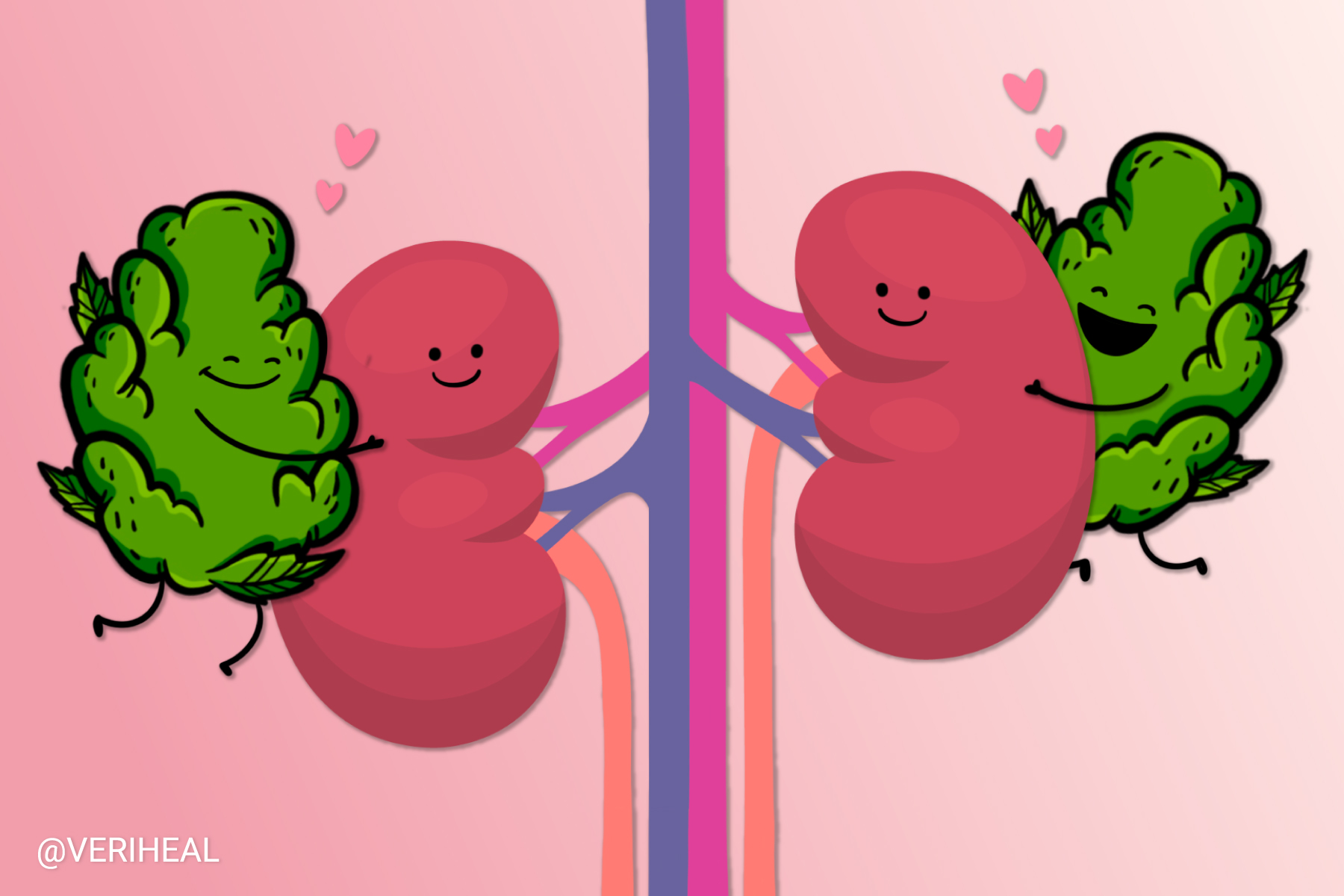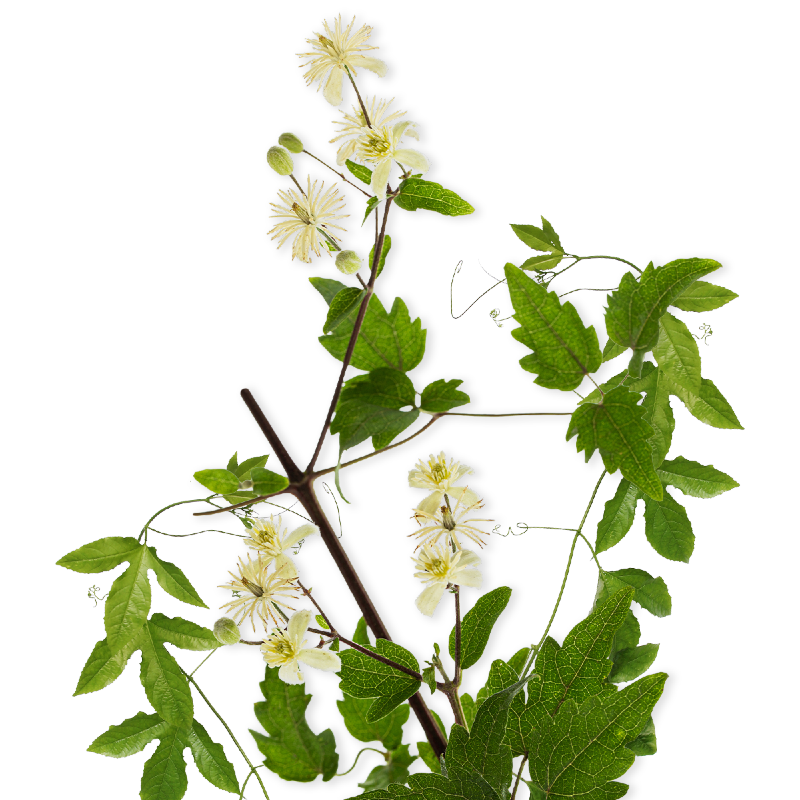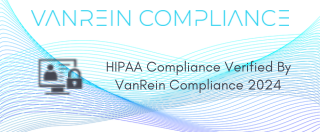Medical Marijuana and High Blood Pressure: Does Cannabis Lower Blood Pressure?

Key Takeaways: Medical Cannabis for Hypertension
Cannabis, specifically THC and CBD, shows promise in addressing hypertension by exhibiting vasodilatory properties. These compounds interact with the endocannabinoid system, potentially widening blood vessels and reducing resistance to blood flow, leading to a potential decrease in blood pressure.
Moreover, cannabis, especially CBD, is linked to stress reduction and anxiety relief. Chronic stress and anxiety contribute to elevated blood pressure, and the calming effects of cannabis may help alleviate these factors. CBD, known for its anxiolytic properties without the psychoactive effects of THC, could offer a non-intoxicating option for managing hypertension.
Additionally, cannabis may have anti-inflammatory effects, suggesting potential benefits for those with hypertension. Chronic inflammation is associated with cardiovascular diseases, including hypertension. By modulating inflammatory responses, cannabinoids may play a role in reducing inflammation and supporting overall cardiovascular health, although further research is needed to fully comprehend these mechanisms and long-term effects. It’s vital to consult with your doctor before trying medical marijuana for hypertension.
The Science Behind Medical Cannabis for Hypertension
- What are the Signs, Symptoms and Types of Hypertension
- Is Cannabis a Good Treatment Option for Hypertension?
- Hypertension and the Endocannabinoid System
- What Cannabis Preparations are Best for Hypertension?
Approximately 1 in 3 U.S. adults have high blood pressure without realizing it. Blood pressure is the pressure of blood that is thrust against the artery walls (2). Arteries transport blood from the heart to other vital parts of the human body.
Otherwise known as hypertension or “the silent killer,” high blood pressure is a major public health issue that occurs in almost half of U.S. adults (3). Although this medical problem occurs more commonly in adults than children, people of all ages may be at risk, too.
In fact, according to the Center for Disease Control and Prevention (CDC), high blood pressure is now stratified into two stages. Stage 1 is defined as a systolic blood pressure between 130-140 mmHg or a diastolic blood pressure between 80-90 mmHg. Stage 2 diagnosis requires a systolic blood pressure above 140 mmHg or a diastolic blood pressure above 90 mmHg (3).
More than 1 in 3 U.S. adults, some 90 million people, are consuming medication for hypertension (1). This factors into some of the total costs of hypertension in the nation, which amounts to approximately $131 billion in healthcare costs annually, based on average figures over 12 years between 2003 and 2014 (3).
Unfortunately, the incidence and costs of this chronic disease are likely to increase since most people with high blood pressure have it uncontrolled, asymptomatic, and need medication adjustments or increases to prevent long-term morbidity and mortality.
Uncontrolled high blood pressure can cause serious health complications and outcomes that result in costlier care over time. It can lead to stroke, CKD, kidney failure and dialysis, heart attack, and other related consequences (2). Treating hypertension with a combination of established, FDA-approved medications and lifestyle interventions (e.g., diet, exercise, no smoking or alcohol) seem to be the most effective way to manage it.
The good news is that cannabis is ascending into the realm of pharmaceutical medicines. With a medical marijuana patient card, it’s possible to become one of the many cannabis users who live with and manage high blood pressure affordably.
Although it cannot be considered an approved treatment, prevention, or cure for hypertension, science suggests that cannabis may offer some respite from the symptoms of this condition under certain conditions, particularly in the face of stress or anxiety.
What are the Signs, Symptoms and Types of Hypertension?
Most young and older adults with high blood pressure don’t experience any symptoms. Because many hypertension patients feel perfectly normal, they don’t realize they need to visit a doctor for a blood pressure reading.
A blood pressure reading is based on the force of blood pumped by your heart and the level of blood flow resistance in your arteries. It comprises two numbers, denoted as one over the other, and is always recorded in millimeters of mercury (mm Hg).
Systolic pressure is represented by the top number, which measures artery pressure when the heart is beating. Dialostic pressure, on the other hand, is represented by the bottom number. This reading measures the blood pressure inside your arteries between each heartbeat.
Signs that you should visit a doctor or emergency room include:
- Blurred vision or visual disturbances
- Confusion
- Chest pain
- Shortness of breath
- Severe headache
- Numbness in the arms and legs
Let’s briefly explore the main types of hypertension:
- Essential Hypertension – For 95% of people who have high blood pressure, the underlying cause is unknown (14). This is known as essential or primary hypertension.
- Secondary Hypertension – When another type of condition or disease causes high blood pressure, it is known as secondary hypertension.
- Isolated Systolic Hypertension – In cases of isolated systolic hypertension, the systolic pressure exceeds 140, whereas the diastolic pressure remains close to the normal range, which is usually less than 90. Elasticity loss in the arteries is a leading cause of this type of hypertension, which occurs most often in older adults aged 65+.
- Malignant Hypertension – Just 1% of people with high blood pressure suffer from malignant hypertension, which is more common in people already with high blood pressure, missed medications, pregnant females, young adults, and African-American men (18). A doctor will diagnose you with malignant hypertension if your diastolic pressure surpasses 130 exceptionally quickly, which can present with the signs listed above and may quickly cause organ damage. Don’t ignore the importance of visiting a hospital if you have severe symptoms or other reasons to believe you are suffering from this type of hypertension since it should be considered a medical emergency.
- Resistant Hypertension – If your blood pressure reading is still too high after your doctor has prescribed three antihypertensive medications (including one diuretic), you likely have resistant hypertension. Approximately 20%-30% of people with high blood pressure are diagnosed with resistant hypertension (16).
What are the Causes and Complications of Hypertension?
In 2020, hypertension was a contributing or primary cause of over 670,000 deaths across the U.S. The good news is that doctors, nurses, and even at-home or in-store tests can easily detect high blood pressure and once diagnosed, you can learn how to manage it. A basic high blood pressure diagnosis requires an elevated measurement at rest, taken two weeks apart.
The most common causes of hypertension (outside of essential hypertension) include hormone abnormalities, high-salt diets, excessive alcohol consumption, thyroid disease, adrenal gland tumors, and airway blockages during sleep. The root cause of high blood pressure should always be worked up by a doctor or healthcare professional.
You might also be at greater risk of developing secondary hypertension if you smoke, are over 65 years old, and regularly consume over-the-counter drugs, such as ibuprofen and pseudoephedrine (15).
Some risk factors for high blood pressure include:
- Being overweight or obese
- Not eating enough fruits and vegetables
- Diet high in salt and preserved or canned foods
- Lack of physical activity
- Poor sleep cycle or sleep apnea
- Drink too much caffeine
It is usual for blood pressure to rise and fall throughout the day, but when it remains in the “red zone,” it can cause long-term damage to your heart. So much so that hypertension puts you at serious risk of increased heart rate, heart disease and stroke — two leading causes of death in the United States.
The arteries may become hardened and thickened if you have chronic, uncontrolled blood pressure — a medical condition known as arteriosclerosis. Other complications that might arise if you don’t control your blood pressure include heart, kidney, and brain health problems and aneurysm rupture, which can all be life-threatening.
Is Cannabis a Good Treatment Option for Hypertension?
Hypertension treatment aims to reduce high blood pressure and shield the body’s vital organs — including the kidneys, heart, and brain — from damage.
Research indicates that hypertension treatment is associated with a 35%-40% average reduction in stroke, a 20%-25% average reduction in heart attack, and a more than 50% average reduction in cases of heart failure (19).
Specially formulated medications can be used to treat cases of hypertension. To begin with, doctors usually recommend consuming a small dose of antihypertensive medications, sometimes more than one.
Some of the most commonly prescribed medications for hypertension include:
- diuretics, including thiazides, chlorthalidone, and indapamide (13)
- beta-blockers and alpha-blockers (11)
- calcium-channel blockers (12)
- central agonists
- peripheral adrenergic inhibitor
- vasodilators
- angiotensin-converting enzyme (ACE) inhibitors (10)
- angiotensin receptor blockers
Preclinical studies show that CBD, among other cannabinoids, has multifarious cardiovascular benefits, including reducing mice blood pressure in response to stress (9).
An example in humans is this randomized, placebo-controlled, double-blind crossover 2017 study that reported reduced blood pressure readings in healthy male volunteers who were given 600 mg of CBD (6).
This small bit of clinical data in nine healthy people showed that 600mg of CBD was associated with a reduction in resting blood pressure and spikes in blood pressure in response to stress, at least in the short term. Larger and longer studies with controls and blinds are needed to show any long-term or overall health benefits in people with high blood pressure.
Hypertension and the Endocannabinoid System
More evidence is surfacing to support the possible benefits of marijuana use in hypertension. Scientists have learned that the endocannabinoid system (ECS) plays an integral role in the cardiovascular management of hypertension.
The ECS has an important job of controlling and regulating a broad spectrum of the body’s critical functions, including appetite, emotions, memory, learning, pain management, sleep, temperature control, inflammatory response, and immune system functions.
Cannabinoids may potentially serve as antihypertensive agents. An investigational study using an experimental cannabinoid showed that its effects on the ECS may reduce the impact of increased blood pressure in hypertension cases by acting as an inhibitor of fatty acid amide hydrolase (FAAH) – the essential enzyme responsible for breaking down the endocannabinoid anandamide (AEA) (4). FAAH inhibition happens to be a known feature of many cannabinoids like CBD, CBG, and CBGA (7).
Research hypothesizes that the effects of cannabis and cannabinoids in animals may effectively reduce blood pressure by acting as natural vasodilators (17). Cannabinoids may act at various targets, such as CB1, CB2, PPARγ, or TRPV1.
According to the CannaKeys 360 research database, the following cannabinoids were tested with blood-pressure-lowering effects:
- THC
- Dronabinol (a synthetic version of THC)
- CBD
- Endocannabinoids and endocannabinoid-like compounds
- Anandamide (AEA) and inhibition of its degrading enzyme fatty acid amidohydrolase (FAAH)
- N-arachidonoyl-dopamine (NADA)
- Virodhamine
- the endocannabinoid analog oleamide
- Synthetic cannabinoids
- JWH133 (a potent CB2 agonist)
- O-1602 (a potent agonist of GRP55 receptor sites)
- ACEA (CB1 agonist) (5)
Data suggests that under the test conditions, each of these cannabinoids achieved drops in blood pressure. However, these studies are few in number, mostly preclinical, some used experimental cannabinoids, and all are short-term.
What Cannabis Preparations are Best for Hypertension?
Studies on cannabis use and CBD (cannabidiol) indicate that the non-psychoactive cannabinoid may benefit people who struggle to maintain their high blood pressure.
In one small study published by the American Society for Clinical Investigation, nine healthy men were administered 600 mg of CBD oil (6). The CBD-focused cannabis therapy, compared with a placebo, minimized resting blood pressure levels and stress-induced blood pressure levels.
CBD is one of the hundreds of biologically active compounds produced by the cannabis plant. Unlike tetrahydrocannabinol (THC), it does not induce altered states of awareness but can significantly positively influence your physical, mental, and emotional well-being.
There are many unique and customizable preparations of CBD, suitable for many lifestyles and needs. CBD in an isolated form does not contain any other cannabinoids or compounds other than CBD. Broad-spectrum and full-spectrum CBD, on the other hand, usually includes various cannabis compounds, including cannabinoids, flavonoids, and terpenes. Full-spectrum contains all cannabinoids, including THC, and is therefore thought to be the most effective form of CBD oil (aka FECO, or full-spectrum extract cannabis oil).
Alternatively, you may smoke or vape CBD for fast-acting effects or consume edibles for longer-lasting effects. Smoking, however, is the least preferred method since heavy cannabis smoking has a modest link to chronic bronchitis and COPD (8).
Discussing Hypertension Treatments with Your Doctor
Working with your doctor to treat hypertension should be a healthcare priority. Remember that it may take some time to meet your blood pressure goal, and you may require multiple, frequent follow-ups and more than one type of medication.
When attending your annual checkup, bring a list of questions about blood pressure, as well as a list of your medications. This will help you understand whether medical cannabis fits in well with your treatment routine.
Complementary Treatments Worth Discussing with Your Doctor
Preventing high blood pressure is possible if you take the right approach. Doctors encourage patients to regulate blood pressure by making the necessary lifestyle changes, such as exercising more frequently and stopping smoking and drinking alcohol.
Steer clear of foods with high salt content and instead consume more berries, beans, fatty fish, lentils, leafy greens, and seeds. Drinking more water is also advised since water prevents dehydration and increases blood flow.
Compression stockings may also improve blood flow from the legs to the heart. In people aged 65 and older, treatment with medication such as fludrocortisone—a drug that increases blood volume—may help reduce blood pressure to less than 130/80.
Level I evidence also suggests that meditation, slow breathing techniques, and dark chocolate can help to prevent hypertension. Some doctors also recommend coenzyme Q10 and Qigong.
1. Cdc. (2021, March 22). Hypertension prevalence in the U.S.: Million hearts®. Centers for Disease Control and Prevention. Retrieved January 5, 2023, from https://millionhearts.hhs.gov/data-reports/hypertension-prevalence.html
2. Centers for Disease Control and Prevention. (2021, May 18). High blood pressure symptoms and causes. Centers for Disease Control and Prevention. Retrieved January 3, 2023, from https://www.cdc.gov/bloodpressure/about.htm
3. Centers for Disease Control and Prevention. (2022, October 14). Facts about hypertension. Centers for Disease Control and Prevention. Retrieved January 3, 2023, from https://www.cdc.gov/bloodpressure/facts.htm
4. Godlewski, G., Alapafuja, S. O., Bátkai, S., Nikas, S. P., Cinar, R., Offertáler, L., Osei-Hyiaman, D., Liu, J., Mukhopadhyay, B., Harvey-White, J., Tam, J., Pacak, K., Blankman, J. L., Cravatt, B. F., Makriyannis, A., & Kunos, G. (2010). Inhibitor of fatty acid amide hydrolase normalizes cardiovascular function in hypertension without adverse metabolic effects. Chemistry & Biology, 17(11), 1256–1266. https://www.ncbi.nlm.nih.gov/pmc/articles/PMC3003779/
5.Hypertension and hypertensive diseases – CANNABIS THC : CBD ratios. Cannakeys. (2022, November 6). Retrieved January 5, 2023, from https://cannakeys.com/thc-cbd-for-hypertension-and-hypertensive-diseases/
6. Jadoon, K. A., Tan, G. D., & O’Sullivan, S. E. (2017). A single dose of cannabidiol reduces blood pressure in healthy volunteers in a randomized crossover study. JCI Insight, 2(12). https://www.ncbi.nlm.nih.gov/pmc/articles/PMC5470879/
7. Jastrząb, A., Jarocka-Karpowicz, I., & Skrzydlewska, E. (2022). The origin and biomedical relevance of Cannabigerol. International Journal of Molecular Sciences, 23(14), 7929. https://www.ncbi.nlm.nih.gov/pmc/articles/PMC9322760/
8. Jett, J., Stone, E., Warren, G., & Cummings, K. M. (2018). Cannabis use, lung cancer, and related issues. Journal of Thoracic Oncology, 13(4), 480–487. https://www.jto.org/article/S1556-0864(18)30038-8/fulltext
9. Krzyżewska, A., Baranowska-Kuczko, M., Mińczuk, K., & Kozłowska, H. (2021). Cannabinoids—a new perspective in adjuvant therapy for pulmonary hypertension. International Journal of Molecular Sciences, 22(18), 10048. https://www.ncbi.nlm.nih.gov/pmc/articles/PMC8472313/
10. MediLexicon International. (n.d.). ACE inhibitors: List, side effects, and more. Medical News Today. Retrieved January 5, 2023, from https://www.medicalnewstoday.com/articles/326791
11. MediLexicon International. (n.d.). Beta-blockers: Types, side effects, and interactions. Medical News Today. Retrieved January 5, 2023, from https://www.medicalnewstoday.com/articles/173068.php
12. MediLexicon International. (n.d.). Calcium channel blockers: Types, list, Side Effects, uses & more. Medical News Today. Retrieved January 5, 2023, from https://www.medicalnewstoday.com/articles/326788
13. MediLexicon International. (n.d.). Diuretics: Types, uses, side effects, and more. Medical News Today. Retrieved January 5, 2023, from https://www.medicalnewstoday.com/articles/diuretics
14. Moran, S. (2019, October 29). 95% of hypertension is of an unknown cause. really?! PreKure. Retrieved January 9, 2023, from https://prekure.com/hypertension-and-low-carb-keto/
15. Pseudoephedrine (Sudafed) – side effects, interactions, uses, dosage, warnings. EverydayHealth.com. (n.d.). Retrieved January 5, 2023, from https://www.everydayhealth.com/drugs/pseudoephedrine
16. Resistant hypertension. Resistant Hypertension | Johns Hopkins Medicine. (2022, March 10). Retrieved January 5, 2023, from https://www.hopkinsmedicine.org/health/conditions-and-diseases/high-blood-pressure-hypertension/resistant-hypertension
17. Stanley, C., & O’Sullivan, S. E. (2014). Vascular targets for cannabinoids: Animal and human studies. British Journal of Pharmacology, 171(6), 1361–1378. https://www.ncbi.nlm.nih.gov/pmc/articles/PMC3954478/
18. WebMD. (n.d.). Malignant hypertension: Risk factors, symptoms, treatments. WebMD. Retrieved January 5, 2023, from https://www.webmd.com/hypertension-high-blood-pressure/guide/what-is-malignant-hypertension
19. WebMD. (n.d.). Visual guide to heart attacks. WebMD. Retrieved January 5, 2023, from https://www.webmd.com/heart-disease/ss/slideshow-heart-attack



